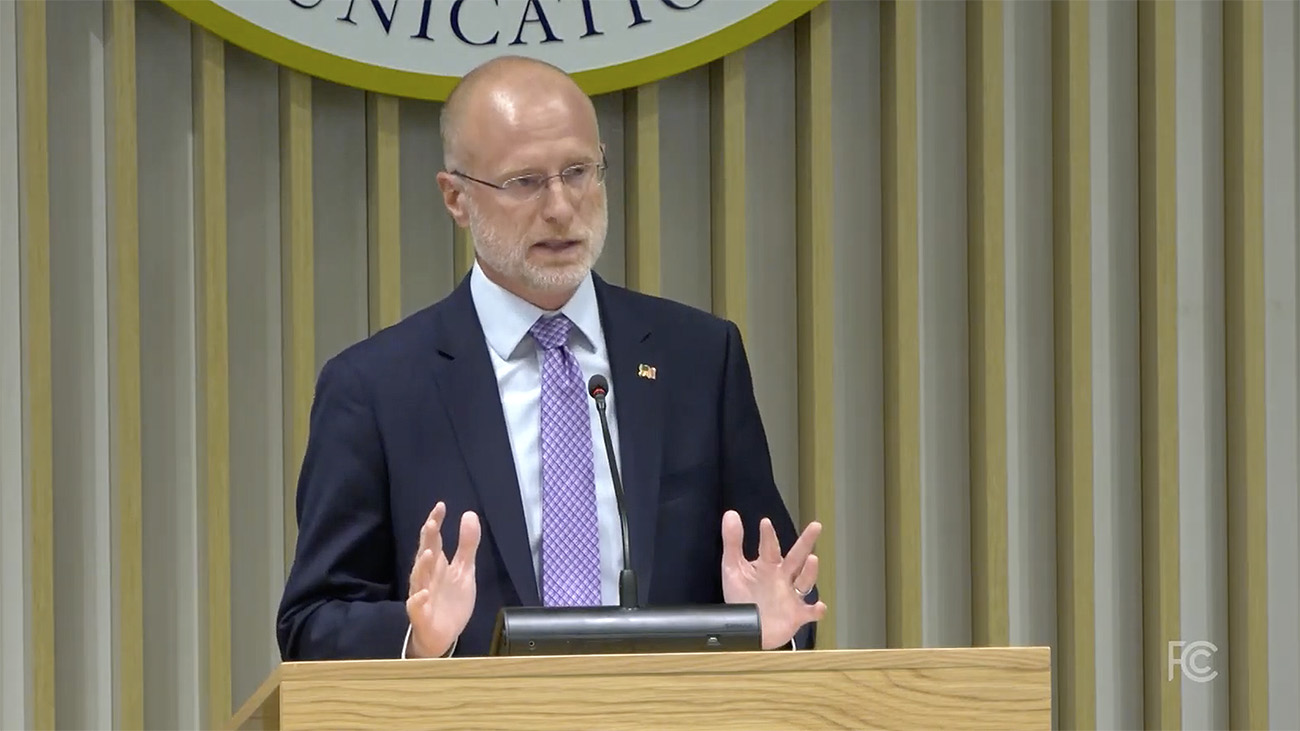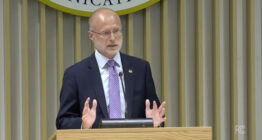FCC’s Carr deflects when pressed on broadcaster investigations

Weekly insights on the technology, production and business decisions shaping media and broadcast. Free to access. Independent coverage. Unsubscribe anytime.
Federal Communications Commission Chairman Brendan Carr defended his agency’s handling of investigations into major broadcast networks during a press conference following the October Open Meeting, insisting that enforcement actions including fines remain possible despite criticism that the FCC has limited itself to making threats.
Responding to pointed questions from a journalism student about why the agency has issued warnings but taken no concrete action against broadcasters, Carr emphasized that multiple investigations remain active and that the 10-month timeline since he took office was appropriate for developing a full record.
“We may very well get there,” Carr said regarding potential fines or other enforcement actions. “We have a number of investigations that are underway right now.”
The chairman outlined several ongoing probes, including investigations into NPR and PBS member stations for allegedly running commercial advertisements instead of permissible sponsor identifications, diversity, equity and inclusion (DEI) inquiries at various providers, and reviews of complaints filed against broadcasters under FCC rules.
Carr also confirmed that the agency has sought public comment on at least one complaint filed by the Center for American Rights against CBS, ABC and NBC stations. The conservative legal group alleged the networks offered biased coverage of Donald Trump during the 2024 presidential campaign and urged the FCC to investigate them for “news distortion.”
When pressed on why he had revived these complaints shortly after becoming chairman but had not yet acted on them, Carr suggested decisions could come “in the next few months” but stressed that no final determinations had been made.
The exchange highlighted tensions within the commission over Carr’s approach to broadcast regulation.
FCC Commissioner Anna Gomez, the sole Democrat among the three commissioners, has characterized the warnings as “empty” threats designed to stifle critical coverage of the Trump administration rather than genuine enforcement efforts.
Critics argue the FCC faces significant First Amendment constraints in attempting to police broadcast content under vague “public interest” standards, making the agency reluctant to take enforceable actions that could be challenged in court.
Carr rejected the characterization that threats were the point of his approach.
“The point is the public interest standard,” he said. “The point is that the FCC should be enforcing the public interest standard. That’s not a threat. That’s just something that Congress has asked us to do.”
In response to separate questions about potential changes to national television ownership rules, Carr indicated he remains “open-minded” to the view that the FCC’s 39% national audience reach cap is a rule that can be modified by the commission rather than a statutory requirement set by Congress.
While Carr maintained that the pace of investigations was appropriate given the complexity of developing a complete record, he provided no specific timeline for when enforcement decisions might be made.
His repeated use of conditional language — “we may move forward,” “we may very well get there” — left unclear whether the investigations would ultimately result in concrete actions.
The chairman’s defense of his enforcement approach comes as he has made increasingly pointed statements about broadcast licenses in other venues.
In a recent interview with the Media Research Center, a conservative media watchdog, Carr stated that broadcast licenses “are not sacred cows” and suggested some stations “may very well end up losing their licenses.”
For now, the broadcast industry remains in a state of regulatory uncertainty, with investigations ongoing but no clear indication of when or whether the FCC will move from warnings to enforcement actions that could test the limits of the agency’s authority over broadcast content.






tags
Brendan Carr, Deregulation, FCC
categories
Broadcast Business News, Featured, Journalism, Policy